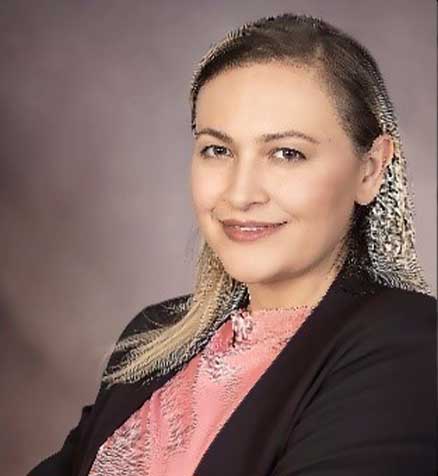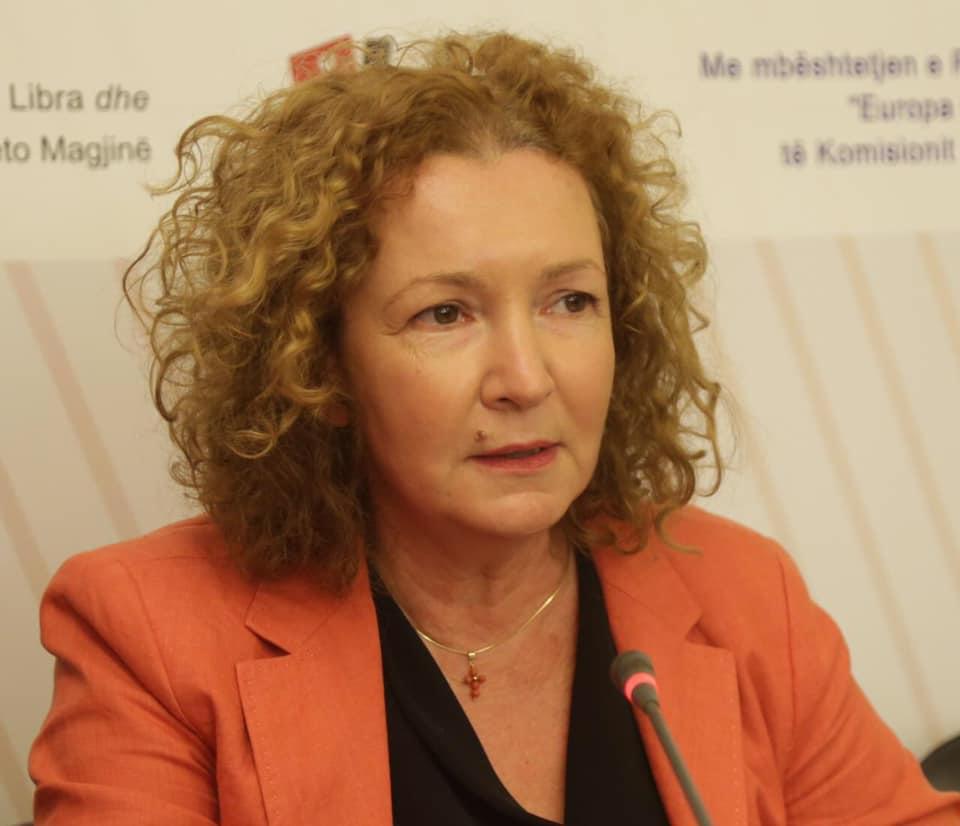Reports and Opinions
The Framework Convention of the Council of Europe "For the Protection of National Minorities" is a very important act for the recognition and protection of minority rights. This convention was signed by the Republic of Albania on June 29, 1995. It was ratified by the Assembly of the Republic of Albania with law no. 8496 dated June 3, 1999, and after the instruments of ratification were deposited on September 28, 1999, it entered into force on January 1, 2000.
The Framework Convention of the Council of Europe "For the Protection of National Minorities" is the first legally binding multilateral instrument aimed at protecting minorities. Its purpose is to define the legal principles that states commit to in order to ensure the protection of national minorities. While having a programmatic character, it also serves as a framework for addressing various situations and issues arising in specific countries, allowing these countries a margin of action according to their particular circumstances.
The standards developed by the Council of Europe to monitor progress made in the field of minority rights protection are used by the European Union as one of the priorities in the accession process of Western Balkan countries.
The reporting system established under the Framework Convention for the Protection of National Minorities monitors the protection of the rights of national minorities.
The provisions of the Framework Convention for the Protection of National Minorities contain specific standards and principles for the protection of minorities, which the contracting parties are obliged to implement at the national level through the adoption of appropriate legislative and administrative measures. The basic principles and standards are:
Article 1
Article 1 of the Convention emphasizes that “the protection of national minorities constitutes an integral part of the international protection of human rights.”
Article 3
Article 3 of the Convention guarantees the right to self-identification, stating that “every person belonging to a national minority has the right to freely choose whether or not to be treated as such.”
Article 4
Article 4 on the prohibition of discrimination states that “the contracting parties are obliged to promote equal treatment of persons belonging to minorities in all aspects of their lives.”
Article 5 and 6
Articles 5 and 6 of the Convention emphasize the protection of cultural, linguistic, and religious identity, as well as the promotion of tolerance and intercultural dialogue.
Article 7 and 8
Articles 7 and 8 of the Convention highlight the freedoms of expression, peaceful assembly, association, as well as freedom of thought, conscience, and religion. The contracting parties must ensure that minorities enjoy the right to manifest their religion and beliefs, as well as to establish religious organizations and associations.
Article 9
Article 9 of the Convention emphasizes access to the media. The contracting parties must take the necessary measures to ensure that persons belonging to minorities have access to the media, and at the same time, they must not hinder the creation and use of media by national minorities.
Article 10 and 11
Articles 10 and 11 of the Convention emphasize the use of minority languages. The contracting parties are obliged to recognize the minorities’ right to freely use their languages both in private and public life, as well as in the fields of education, media, and official contacts. Furthermore, these articles guarantee the right to use personal names and topographical indicators (names of places, streets, and areas) in the languages of national minorities.
Article 12, 13 and 14
Articles 12, 13, and 14 of the Convention emphasize educational rights. The contracting parties must ensure that the national education system allows national minorities to be taught in their own language, as well as to receive instruction in their language at all educational levels.
Article 15
Article 15 emphasizes the right to effective participation and representation. The contracting parties must ensure the participation of national minorities in all aspects of public life, as well as in central and local administration.
Article 17 and 18
Articles 17 and 18 emphasize cross-border cooperation. The contracting parties must not hinder the cooperation of national minorities with individuals living in other countries with whom they share a common ethnic, cultural, linguistic, or religious identity. Moreover, such cooperation should be encouraged.
The implementation of the above provisions depends on the will of the states that are parties to the Convention.
To monitor the implementation of the principles of the Framework Convention for the Protection of National Minorities, the establishment of the Advisory Committee was deemed necessary. This committee reviews the reports submitted by the member states and assesses the adequacy of the measures taken in order to determine the degree of harmonization between national standards and those of the Convention, and to prepare the final opinion of the Council on the commitments made by the states.
This mechanism is used by the European Commission to reflect priorities regarding the protection of national minorities in the progress reports as requirements to be fulfilled by countries aspiring to join the EU. The ratification of the Framework Convention for the Protection of National Minorities and compliance with its provisions and standards are essential requirements for (potential) candidate countries in order to advance their accession to the European Union.
In the link below, you will find detailed information on all the reports prepared by Albania, the opinions of the Council, and the Resolutions within the framework of monitoring the progress made by our country in the field of minority rights protection as one of the priorities in Albania’s accession process to the European Union:
https://www.coe.int/en/web/minorities/albania
https://ec.europa.eu/neighbourhood-enlargement/enlargement-policy/negotiations-status/albania_en
Reports and Opinions
The Framework Convention of the Council of Europe "For the Protection of National Minorities" is a very important act for the recognition and protection of minority rights. This convention was signed by the Republic of Albania on June 29, 1995. It was ratified by the Assembly of the Republic of Albania with law no. 8496 dated June 3, 1999, and after the instruments of ratification were deposited on September 28, 1999, it entered into force on January 1, 2000.
The Framework Convention of the Council of Europe "For the Protection of National Minorities" is the first legally binding multilateral instrument aimed at protecting minorities. Its purpose is to define the legal principles that states commit to in order to ensure the protection of national minorities. While having a programmatic character, it also serves as a framework for addressing various situations and issues arising in specific countries, allowing these countries a margin of action according to their particular circumstances.
The standards developed by the Council of Europe to monitor progress made in the field of minority rights protection are used by the European Union as one of the priorities in the accession process of Western Balkan countries.
The reporting system established under the Framework Convention for the Protection of National Minorities monitors the protection of the rights of national minorities.
The provisions of the Framework Convention for the Protection of National Minorities contain specific standards and principles for the protection of minorities, which the contracting parties are obliged to implement at the national level through the adoption of appropriate legislative and administrative measures. The basic principles and standards are:
Article 1
Article 1 of the Convention emphasizes that “the protection of national minorities constitutes an integral part of the international protection of human rights.”
Article 3
Article 3 of the Convention guarantees the right to self-identification, stating that “every person belonging to a national minority has the right to freely choose whether or not to be treated as such.”
Article 4
Article 4 on the prohibition of discrimination states that “the contracting parties are obliged to promote equal treatment of persons belonging to minorities in all aspects of their lives.”
Article 5 and 6
Articles 5 and 6 of the Convention emphasize the protection of cultural, linguistic, and religious identity, as well as the promotion of tolerance and intercultural dialogue.
Article 7 and 8
Articles 7 and 8 of the Convention highlight the freedoms of expression, peaceful assembly, association, as well as freedom of thought, conscience, and religion. The contracting parties must ensure that minorities enjoy the right to manifest their religion and beliefs, as well as to establish religious organizations and associations.
Article 9
Article 9 of the Convention emphasizes access to the media. The contracting parties must take the necessary measures to ensure that persons belonging to minorities have access to the media, and at the same time, they must not hinder the creation and use of media by national minorities.
Article 10 and 11
Articles 10 and 11 of the Convention emphasize the use of minority languages. The contracting parties are obliged to recognize the minorities’ right to freely use their languages both in private and public life, as well as in the fields of education, media, and official contacts. Furthermore, these articles guarantee the right to use personal names and topographical indicators (names of places, streets, and areas) in the languages of national minorities.
Article 12, 13 and 14
Articles 12, 13, and 14 of the Convention emphasize educational rights. The contracting parties must ensure that the national education system allows national minorities to be taught in their own language, as well as to receive instruction in their language at all educational levels.
Article 15
Article 15 emphasizes the right to effective participation and representation. The contracting parties must ensure the participation of national minorities in all aspects of public life, as well as in central and local administration.
Article 17 and 18
Articles 17 and 18 emphasize cross-border cooperation. The contracting parties must not hinder the cooperation of national minorities with individuals living in other countries with whom they share a common ethnic, cultural, linguistic, or religious identity. Moreover, such cooperation should be encouraged.
The implementation of the above provisions depends on the will of the states that are parties to the Convention.
To monitor the implementation of the principles of the Framework Convention for the Protection of National Minorities, the establishment of the Advisory Committee was deemed necessary. This committee reviews the reports submitted by the member states and assesses the adequacy of the measures taken in order to determine the degree of harmonization between national standards and those of the Convention, and to prepare the final opinion of the Council on the commitments made by the states.
This mechanism is used by the European Commission to reflect priorities regarding the protection of national minorities in the progress reports as requirements to be fulfilled by countries aspiring to join the EU. The ratification of the Framework Convention for the Protection of National Minorities and compliance with its provisions and standards are essential requirements for (potential) candidate countries in order to advance their accession to the European Union.
In the link below, you will find detailed information on all the reports prepared by Albania, the opinions of the Council, and the Resolutions within the framework of monitoring the progress made by our country in the field of minority rights protection as one of the priorities in Albania’s accession process to the European Union:
https://www.coe.int/en/web/minorities/albania
https://ec.europa.eu/neighbourhood-enlargement/enlargement-policy/negotiations-status/albania_en









